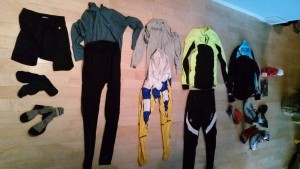Cold Weather Tips for Athletes:
- Don’t be afraid to wear extra clothing. Vests and toques are an important addition and it may also be reasonable to wear two layers of synthetic (polyester) underclothing.
- Balaclavas, neck-warmers and windproof briefs are also a good idea. Consider substituting mitts for gloves. Boot covers are great for keeping feet warm.
- Creams, lotions and jellies can reduce the direct exposure of the skin to the air. However, to be effective they must not have water in their base.
- Ski glasses/goggles can keep the wind out of your eyes, but they can also cause a “wind tunnel” effect on other parts of your face. For eye comfort, blink more often than usual. This is particularly true if you wear contacts.
- Consider carrying hand-warming packets (coaches can carry a couple of these with them) to avoid frostbite.
- Learn to recognize the signs and symptoms of frostbite.
- Individuals have a different tolerance to cold weather. Children less than 10 years of age are not able to thermo regulate as well as older athletes.
- Make sure you are properly hydrated and are not hungry. Bring extra foods and fluids to the site of the event in case there is a delay.
- Up to 20% of cross-country skiers suffer from exercise-induced asthma (EIA). Cold dry air exacerbates this condition. If you are susceptible to exercise induced asthma you will need to take extra precautions. A proper warm-up is critical and your predisposition to EIA should be discussed with a physician




